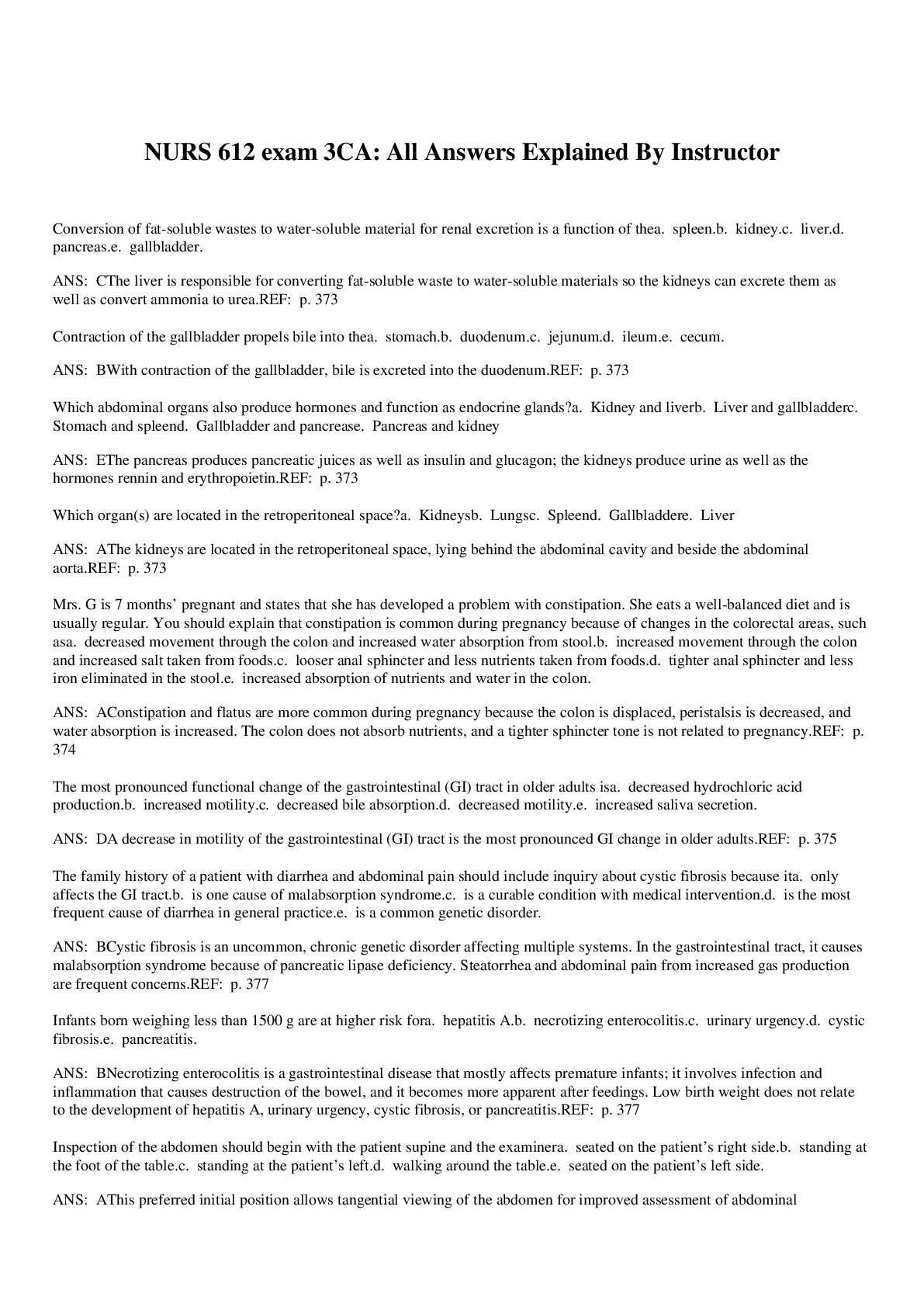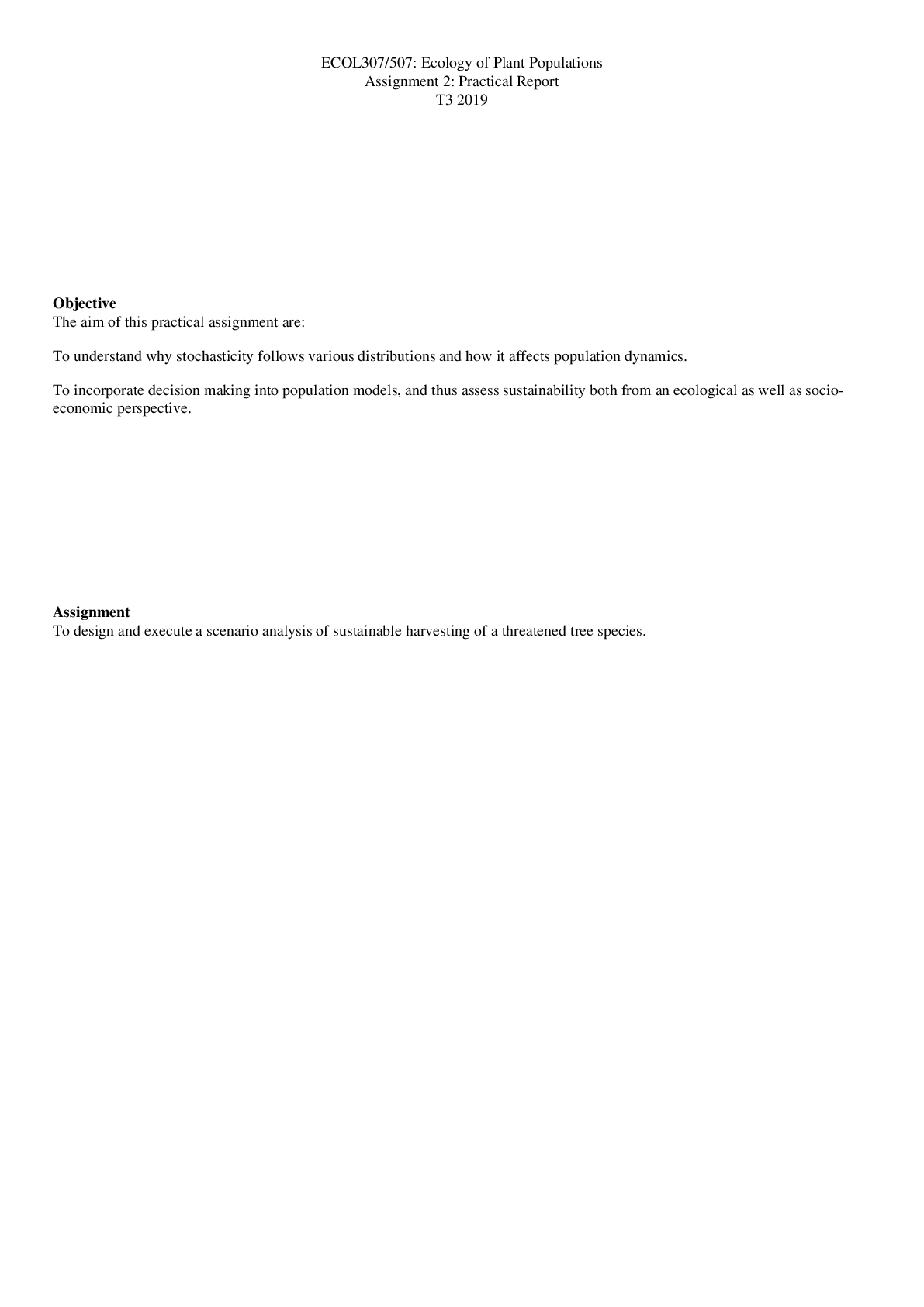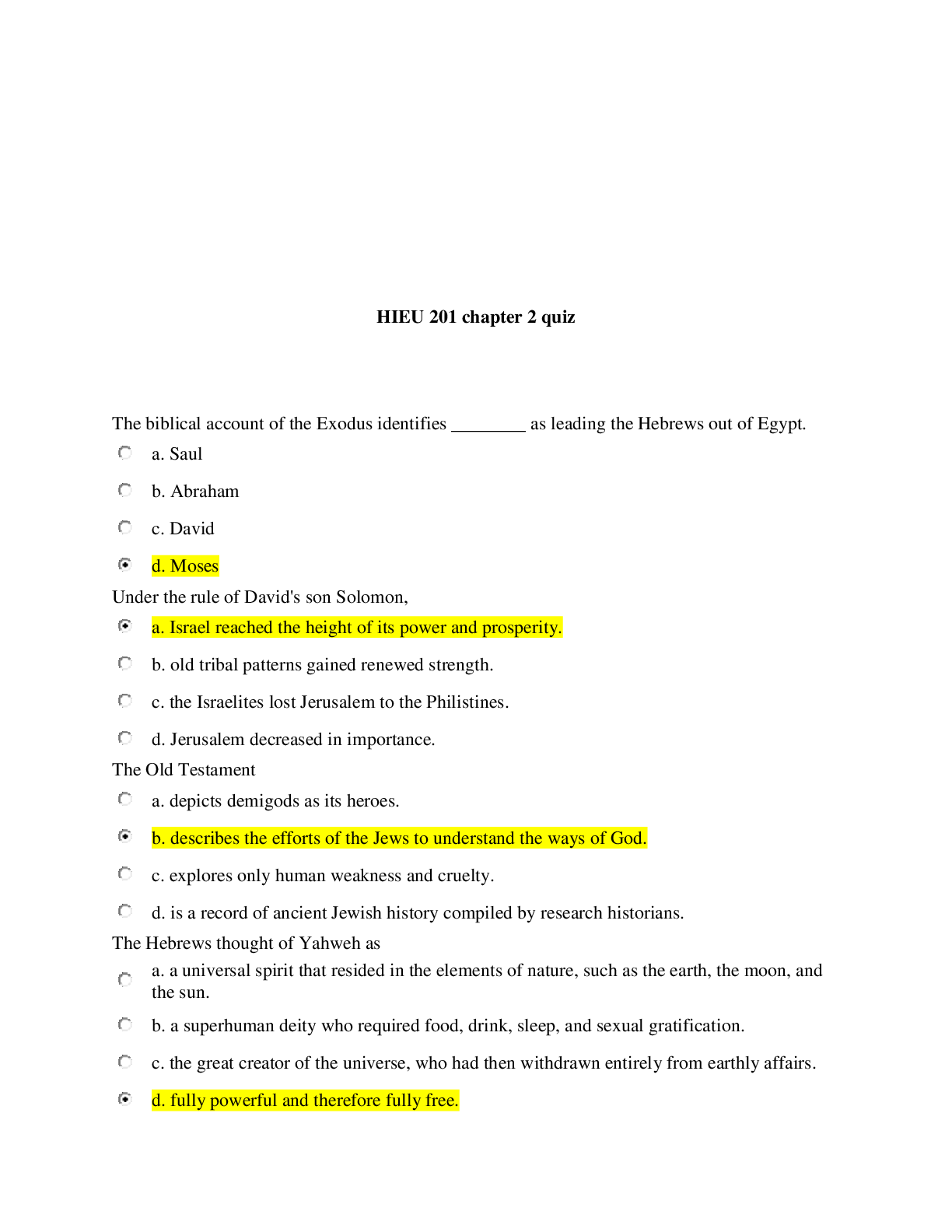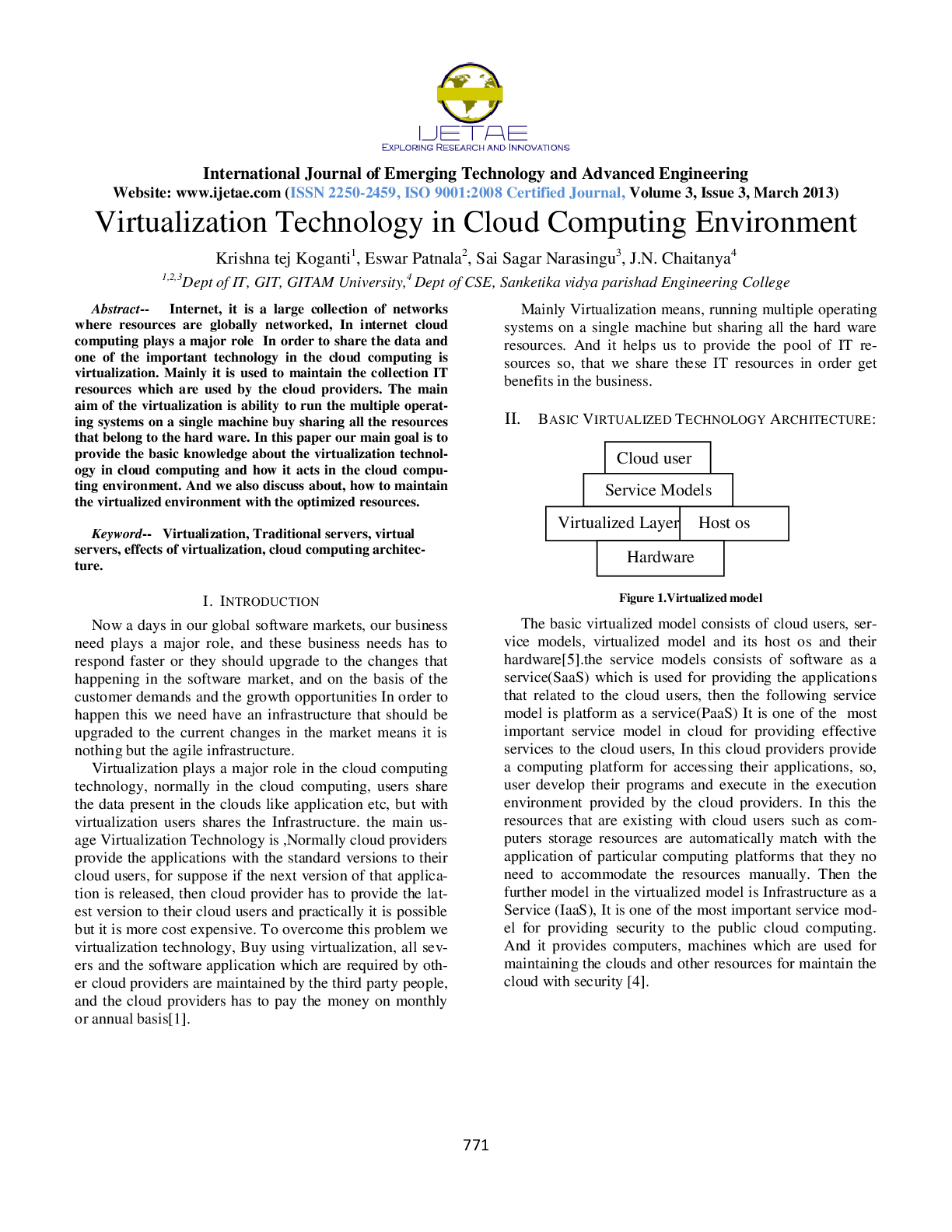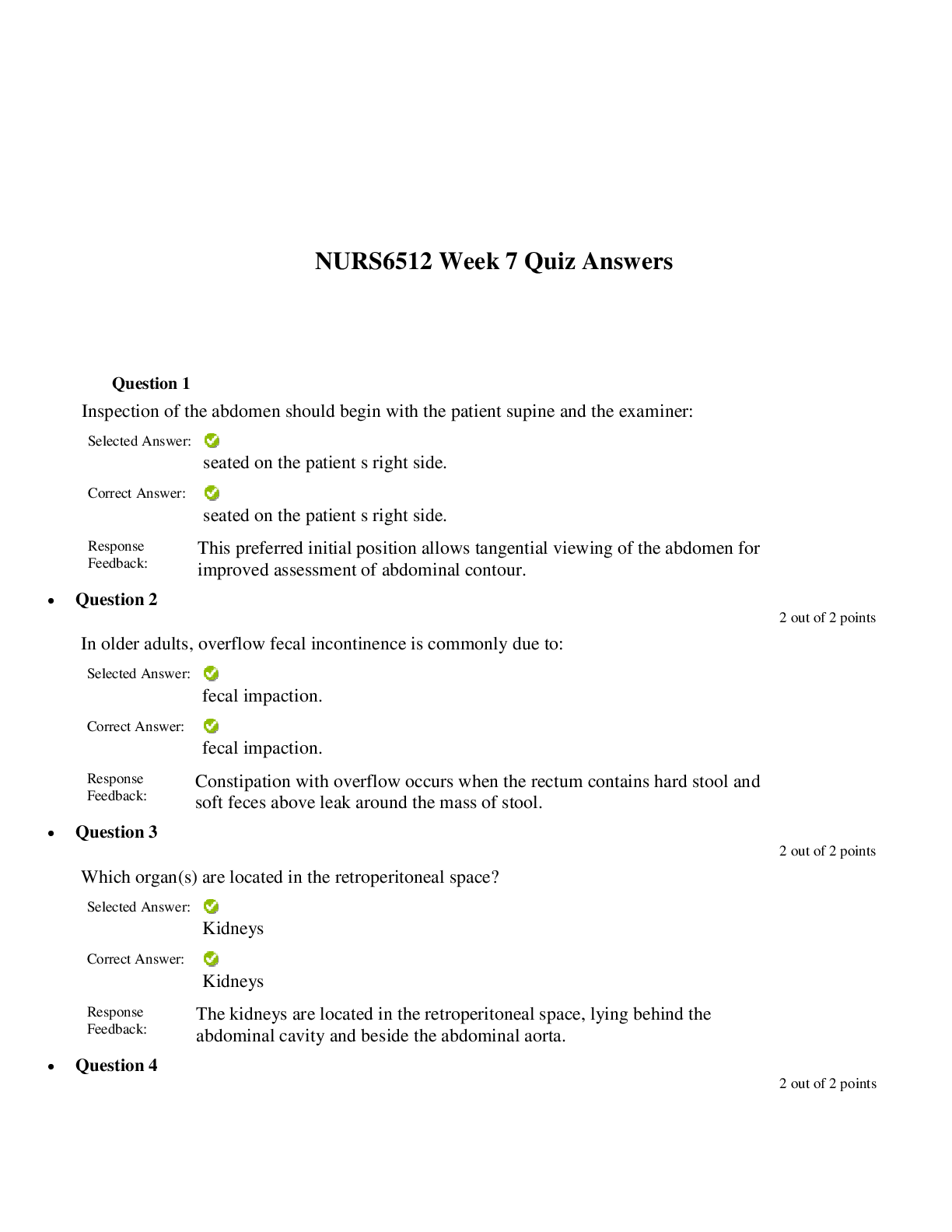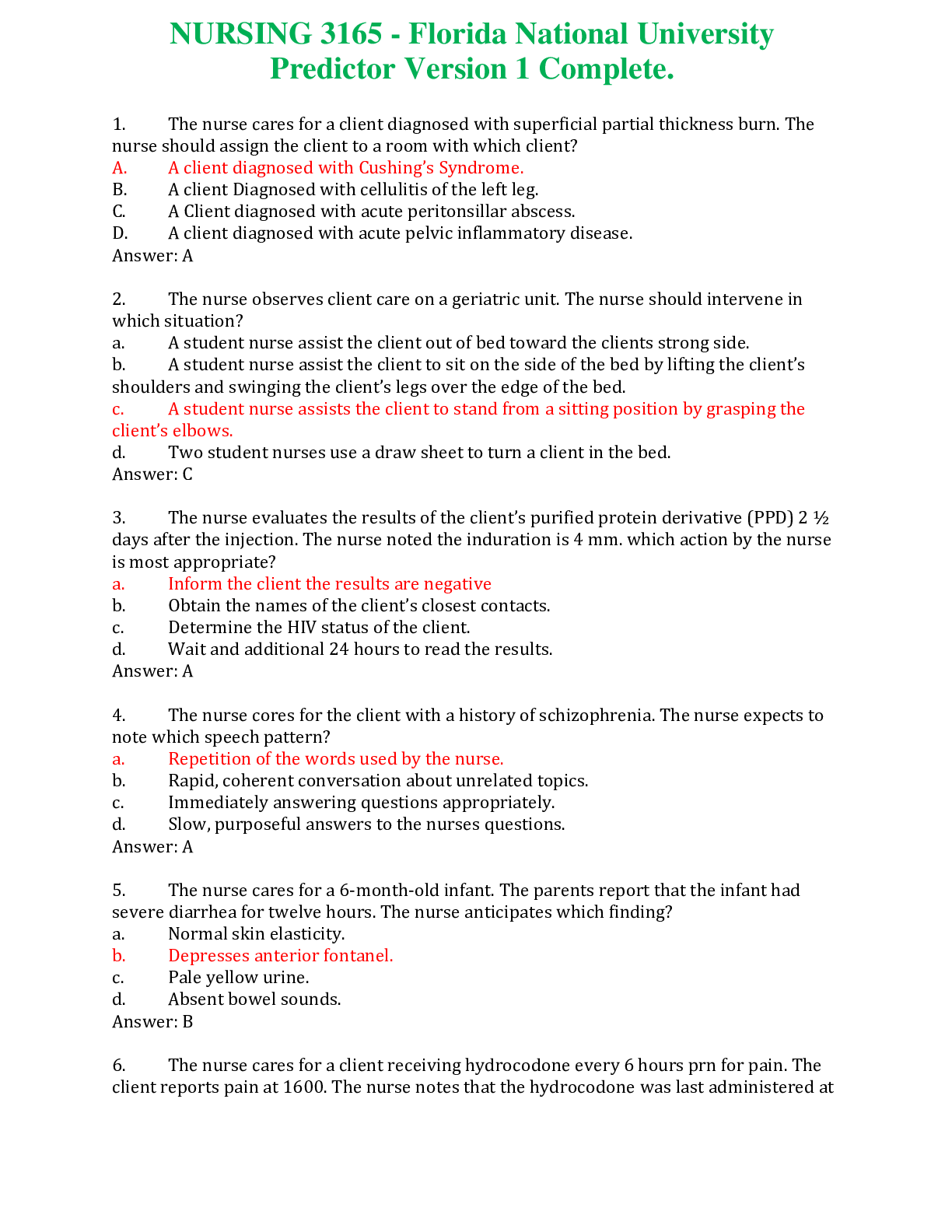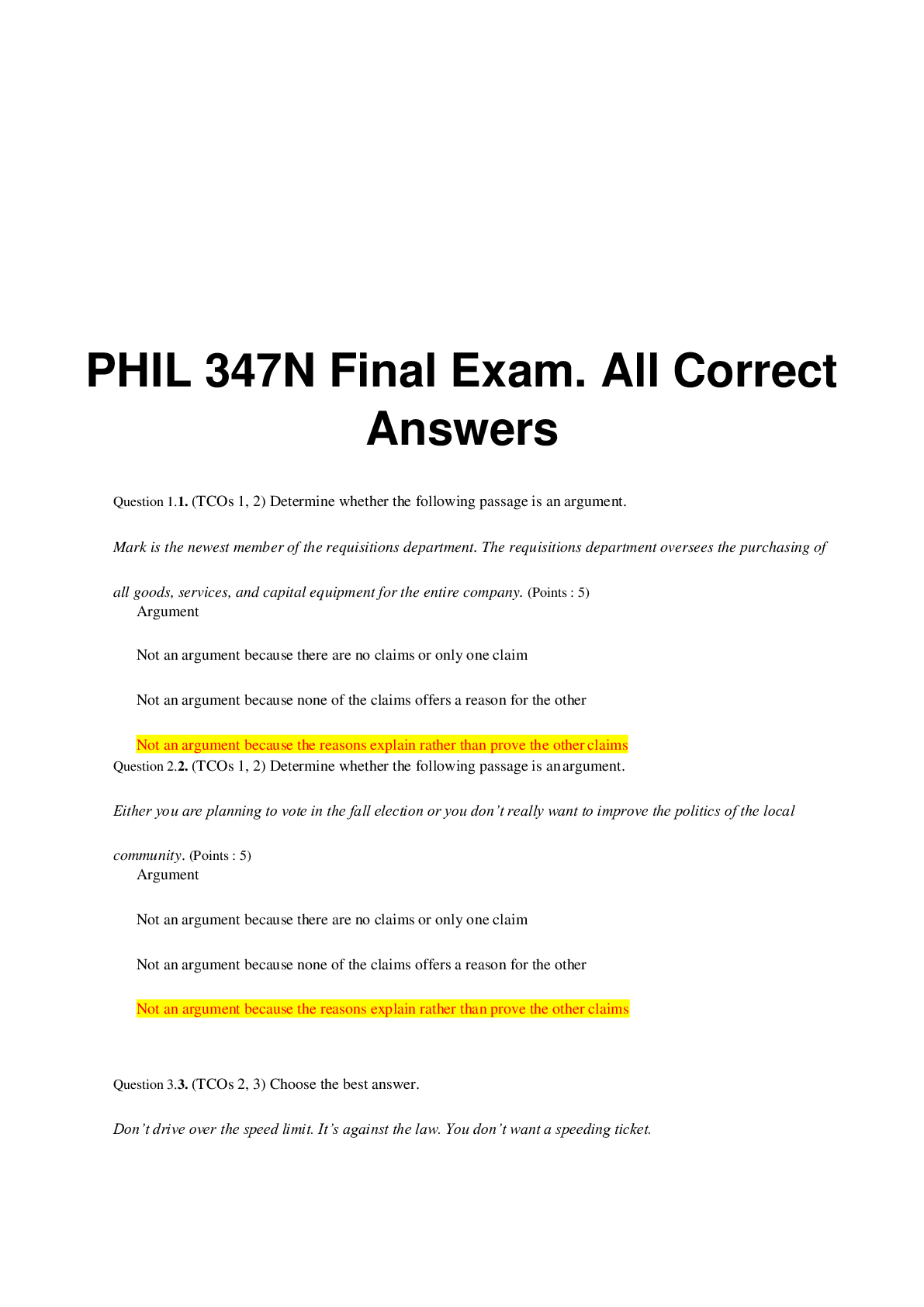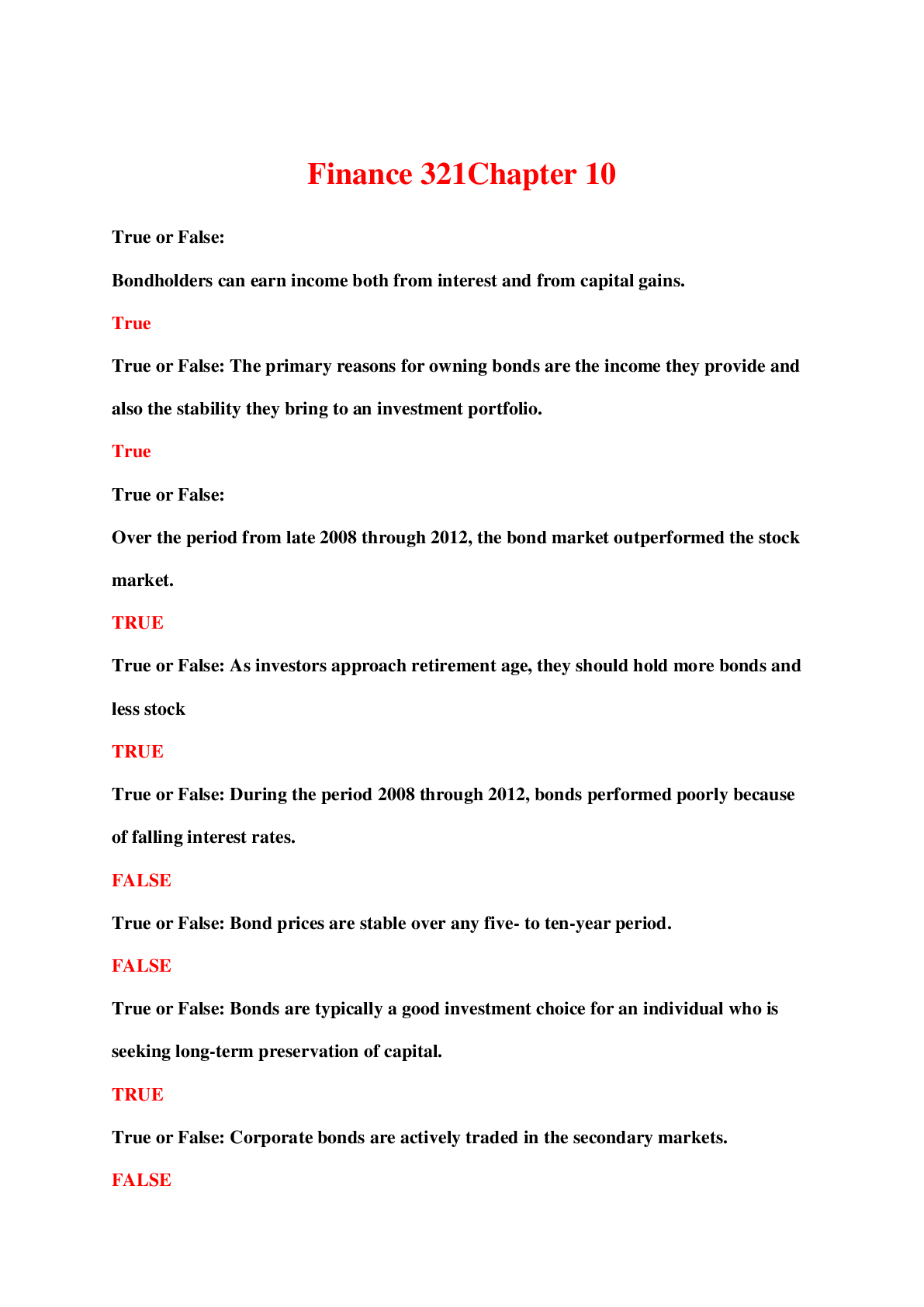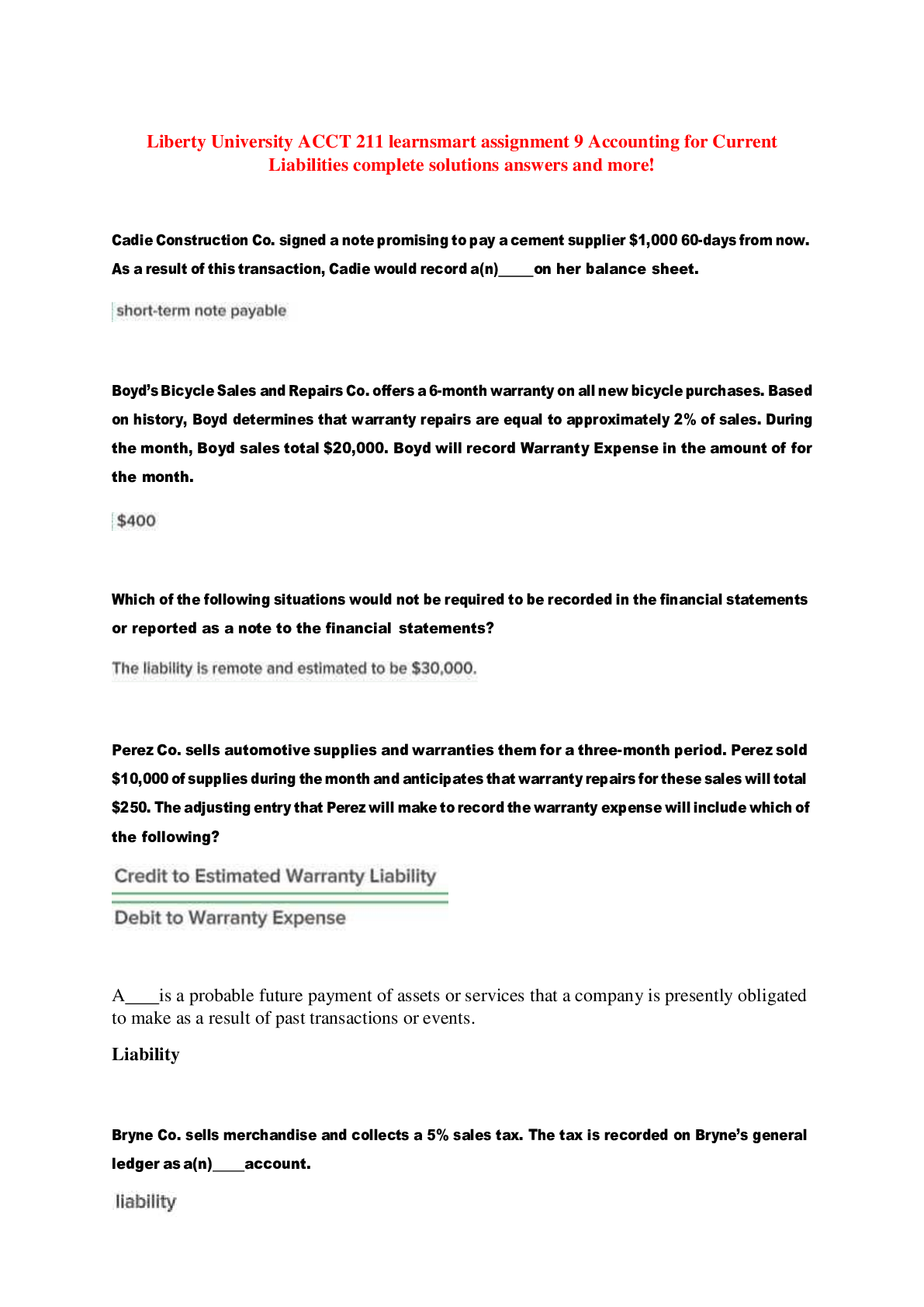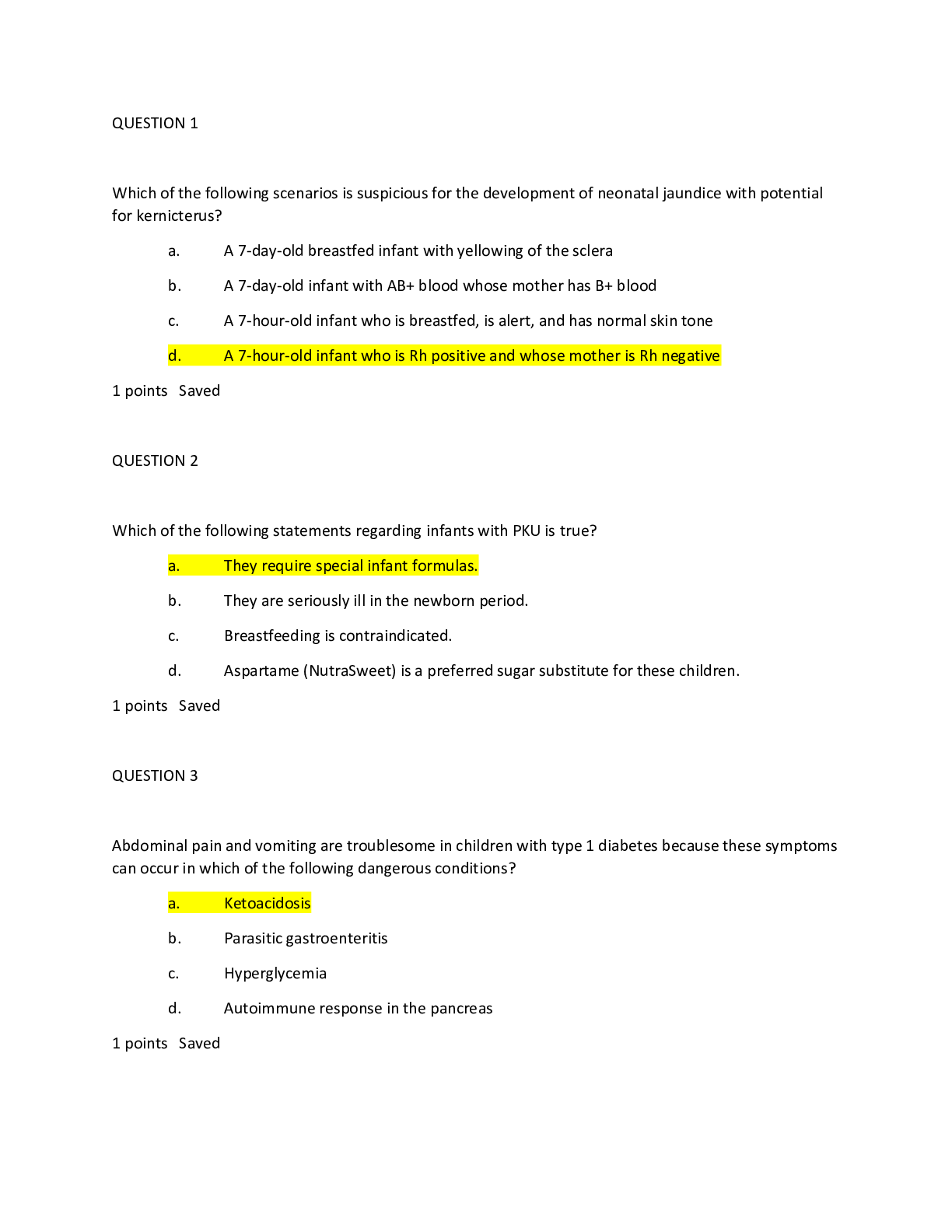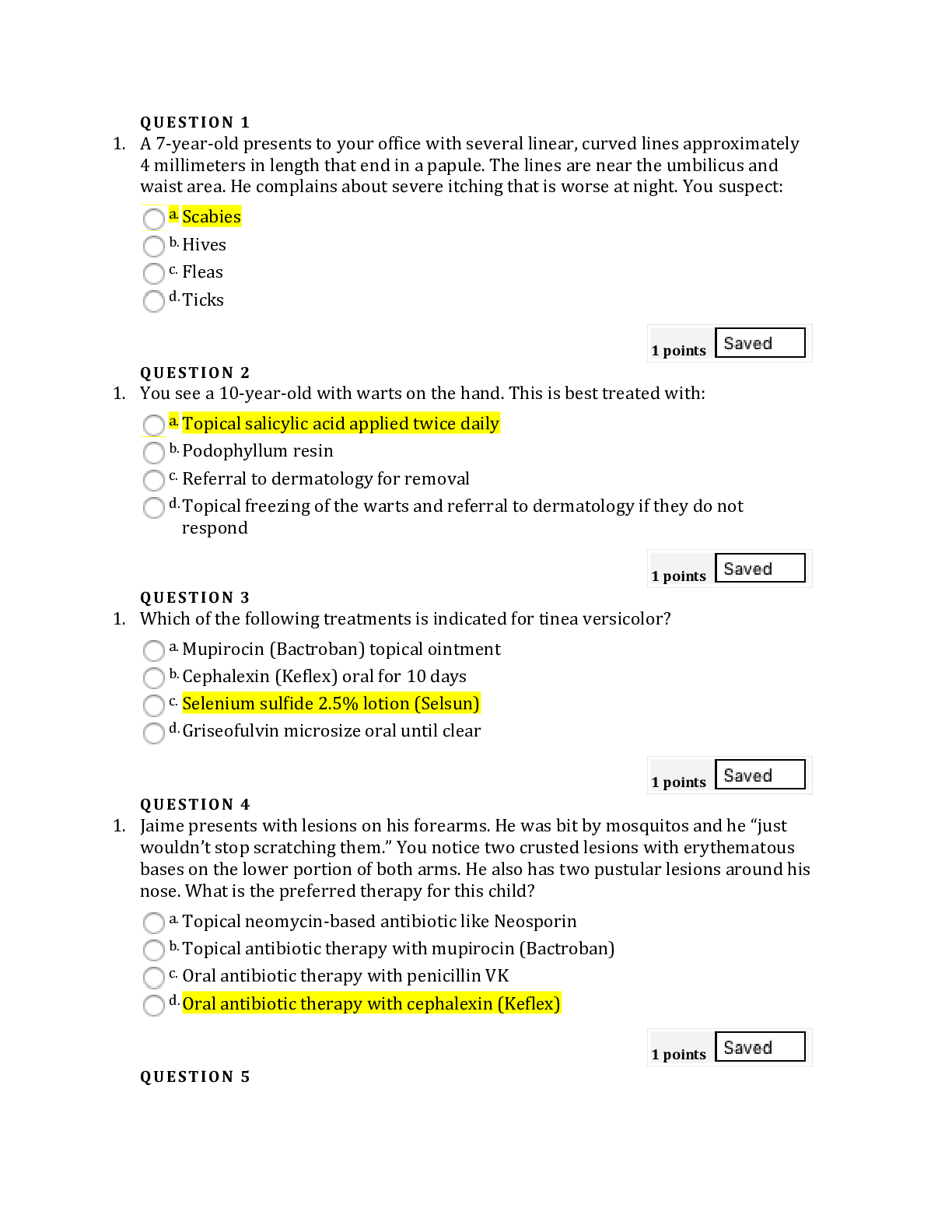Law > QUESTIONS & ANSWERS > CIPP/US Practice Questions (All)
CIPP/US Practice Questions
Document Content and Description Below
CIPP/US Practice Questions The U.S. Constitution establishes what three branches of government? - ANS - Legislative, Executive, Judicial What establishes the three branches of the U.S. Government? ... - ANS - The U.S. Consitution What is the purpose of the three-branch government design? - ANS - To provide a separation of powers with a system of check and balances among the branches. What similarities are found between state and federal government? - ANS - The three branches are also often found at the state and often the local levels. What is the legislative branch's make-up? - ANS - The legislative branch is made up of elected representatives who write and pass laws. It includes the Congress (House and Senate). What does the legislative branch do? - ANS - Congress confirms presidential appointees, and can override vetoes. What are the duties of the executive branch? - ANS - The executive branch's duties are to enforce and administer the law. Who makes up the executive branch? - ANS - The President, Vice President, cabinet, and federal agencies (such as the FTC). What can the executive branch do? - ANS - President appoints federal judges. It can veto laws passed by Congress. What can the judicial branch do? - ANS - The Judicial branch determines whether the laws are constitutional. It also interprets laws, the meaning of a law, and how it is applied. It can also examine the intent behind a law's creation. What is the judicial branch? - ANS - The Federal Courts. What two parts make up the U.S. Congress? - ANS - The Senate and the House of Representatives (legislative branch) What can Congress do when enacting legislation? - ANS - Congress can delegate the power to promulgate regulations to federal agencies (such as the FTC). What laws has Congress enacted involving the FTC? - ANS - Congress has enacted several laws that give the U.S. Federal Trade Commission the authority to issue regulations to implement the laws. Does the executive branch include federal agencies that report directly to the President? - ANS - Yes What do federal agencies in the executive branch do? - ANS - They implement the laws through rule making and enforce the laws through civil and criminal procedures. What are the lowest courts called in the federal court system (judicial branch)? - ANS - District Courts. These serve as federal trial courts. Cases decided by a district court can be referred to what? - ANS - A federal appellate court (also called a "circuit court"). What do federal circuit courts do? - ANS - They are not trial courts; they serve as appeals courts for federal cases. The federal appeals courts are divided into how many circuits? - ANS - 12 regional circuits; each district court is assigned to a appeals court which decides the appeals for that circuit. What are the other federal courts called? - ANS - Special courts include the U.S. Court of Federal Claims and the U.S. Tax Court. What is the top court in the judicial branch? - ANS - The U.S. Supreme Court. What does the U.S. Supreme Court do? - ANS - Hears appeals from the circuit courts and decides questions of federal law; also interprets the U.S. Constitution. May also hear appeals from the highest state courts or function as a trial court in rare instances. In what circumstances do federal agencies wield power that is characteristic of all three branches of government? - ANS - When they are given authority by Congress to promulgate and enforce rules pursuant to law. This means they operate under statutes that give them legislative power to issue rules, executive power to investigate and enforce violations of rules/statutes, and judicial power to settle particular disputes. What are the sources of law in the U.S.? - ANS - Federal and state constitutions, legislation, case law (contracts and torts), and agency-issued regulations. What is the supreme law in the U.S.? - ANS - The Constitution. Who drafted the Constitution and when? - ANS - The Constitutional Convention drafted the Constitution in 1787. True/False: The U.S. Constitution does not contain the word "Privacy". - ANS - True. Which parts of the Constitution directly affect privacy? - ANS - The Fourth Amendment limits on government searches. Which Supreme Court decisions affect privacy? - ANS - The S.C. has held that a person has a right to privacy over personal issues such as contraception and abortion, arising from more general protections of due process of law. What are other sources of law affecting privacy? - ANS - State constitutions may create stronger rights than are provided in the U.S. Constitution. Which state expressly recognizes a right to privacy in its constitution? - ANS - California. What areas are regulated by laws enacted by federal Congress and state legislatures? - ANS - applications of information (use of information for marketing or pre-employment screening), certain industries (such as financial institutions or healthcare providers), certain data elements (SSNs or driver's license info), or specific harms (identity theft or children's online privacy) How is law-making power distributed in the U.S.? - ANS - Law-making power is shared between the national and state governments. What does the U.S. Constitution say about laws under the Constitution? - ANS - It states that the Constitution and the laws passed pursuant to it, is "the supreme law of the land." When do states have the power to make laws? - ANS - Where federal law does not prevent it, states have the power to make law. Which Amendment to the Constitution states "the powers not delegated to the United States by the Constitution, nor prohibited by it to the States, are reserved to the States respectively, or to the people."? - ANS - The Tenth Amendment to the Constitution. What is one area of law where states may pass privacy/other laws with stricter requirements than federal law? - ANS - HIPAA medical privacy ru [Show More]
Last updated: 1 year ago
Preview 1 out of 41 pages
Instant download
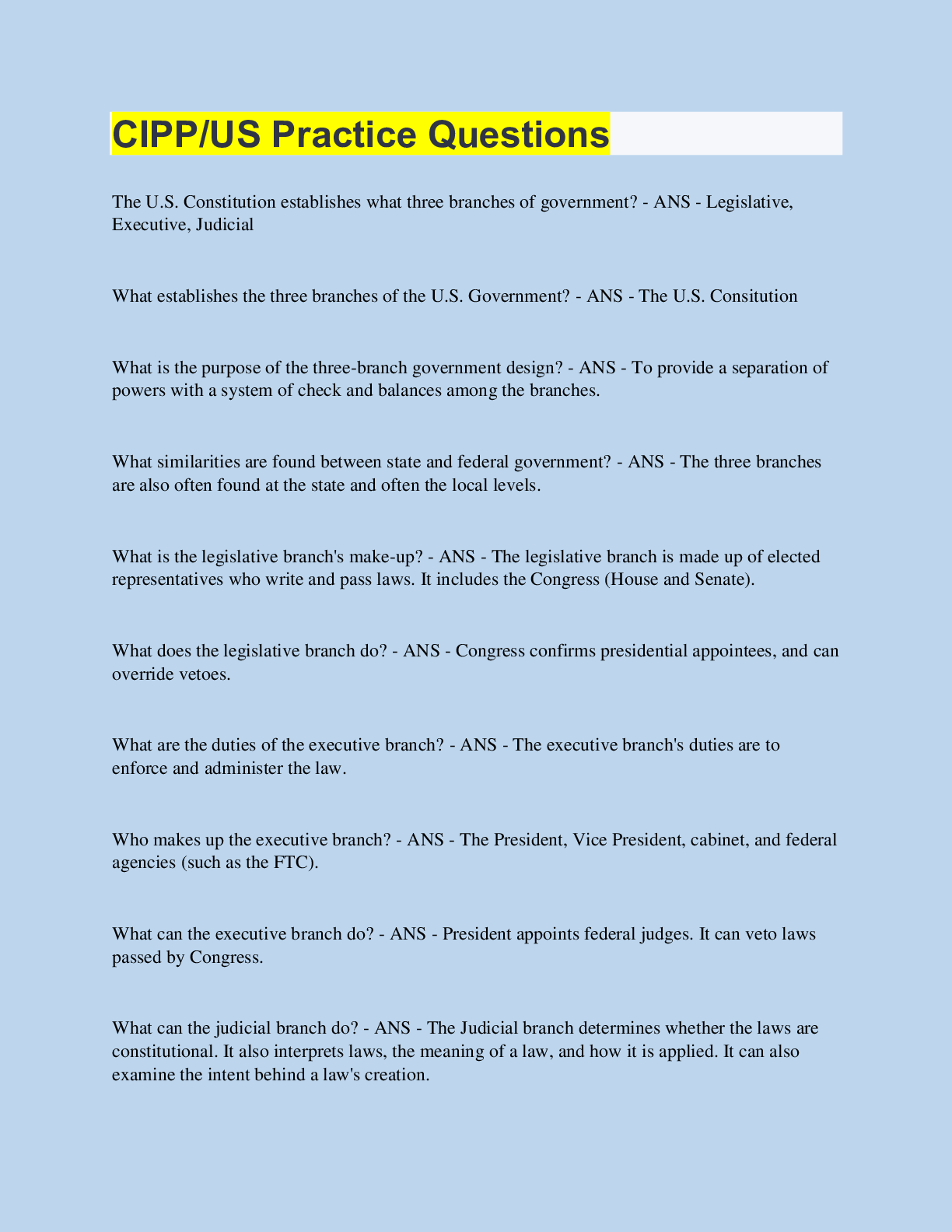
Buy this document to get the full access instantly
Instant Download Access after purchase
Add to cartInstant download
Reviews( 0 )
Document information
Connected school, study & course
About the document
Uploaded On
Oct 05, 2022
Number of pages
41
Written in
Additional information
This document has been written for:
Uploaded
Oct 05, 2022
Downloads
0
Views
55

.png)
.png)
.png)
.png)
.png)
.png)
.png)
.png)
.png)
.png)
.png)

